by Angela Glowacki
On the morning of Sunday, April 21, hundreds congregated at the Muzha Zhongshun Temple to commence the start of the Wang Gong Pastoral Patrolling of the Fields. A group of international students from NCCU attended this event to experience this culturally significant event.
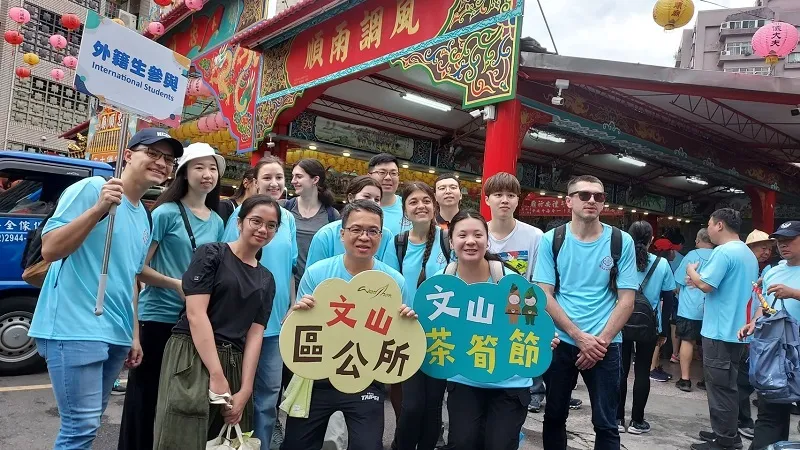
▲International Students from NCCU attending the event (credit: Angela Glowacki)
Wang Gong (also known as Ang Gong and Baoyi Daifu) is a deity brought from Fujian, China to Taipei, Taiwan. In life, Wang Gong was a general in the Tang Dynasty who went by the name of Zhang Xun. He and his soldiers were killed in battle and he was afterwards worshiped as Ang Gong in Fujian. Sometime during the Qing Dynasty, two cousins brought his statue to Taiwan where it ended up in a private shrine in Muzha.
It is said that Wang Gong supported Han immigrants to compete with the Atayal aboriginals for land to grow tea. Given that Taiwan was an agricultural country, Wang Gong played an important role for farmers. Today, tea farmers rely on his protection to expand their land and protect their harvests. Wang Gong is worshiped in several private shrines in the Taipei area.
The day began at the Muzha Zhongshun Temple, where the idols, also referred to as shen xiang, were transported on to palanquins (shen jiao) or special vehicles decorated with amulets.
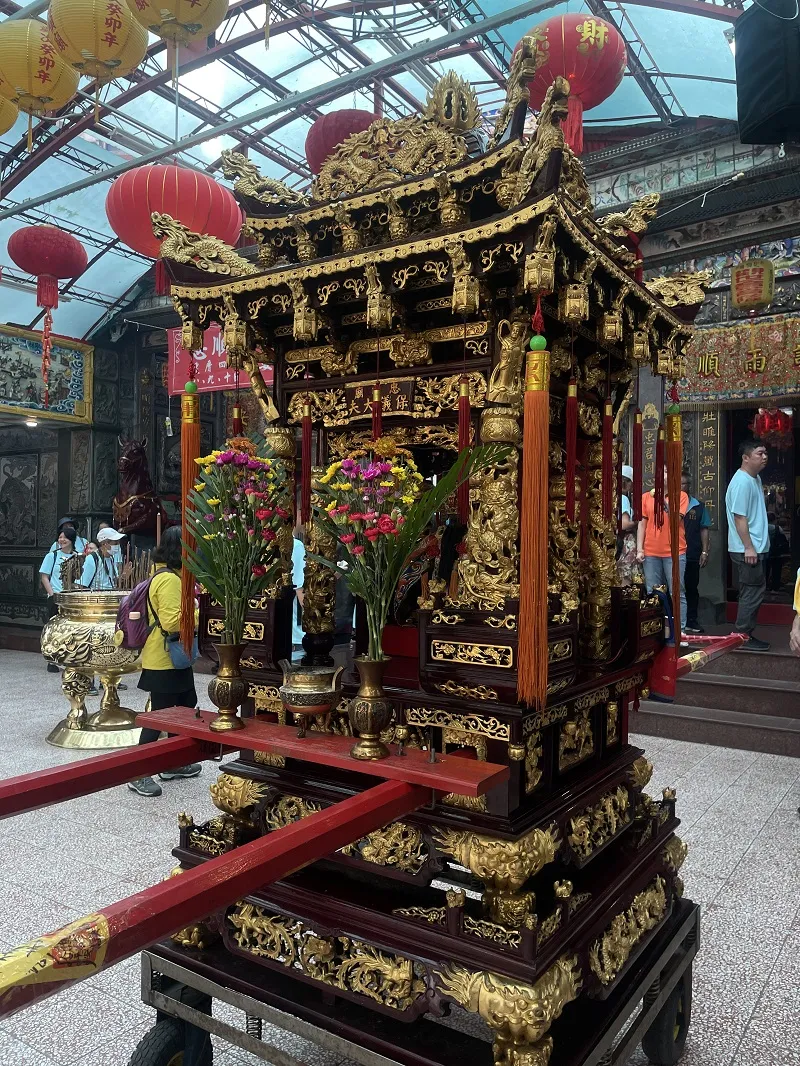
▲The palanquin (shen jiao 神轎) carrying the idol (shen xiang 神像 ) (credit: Angela Glowacki)
The route started from the temple and went to the Taipei Tea Promotion Center in the Maokong mountainous area. Along the way, the procession paused at several temples. The shen jiao carrying Wang Gong entered the temples briefly before carrying on the rest of the journey.
In two tea fields, bamboo sticks with amulets and incense are placed to protect the field.
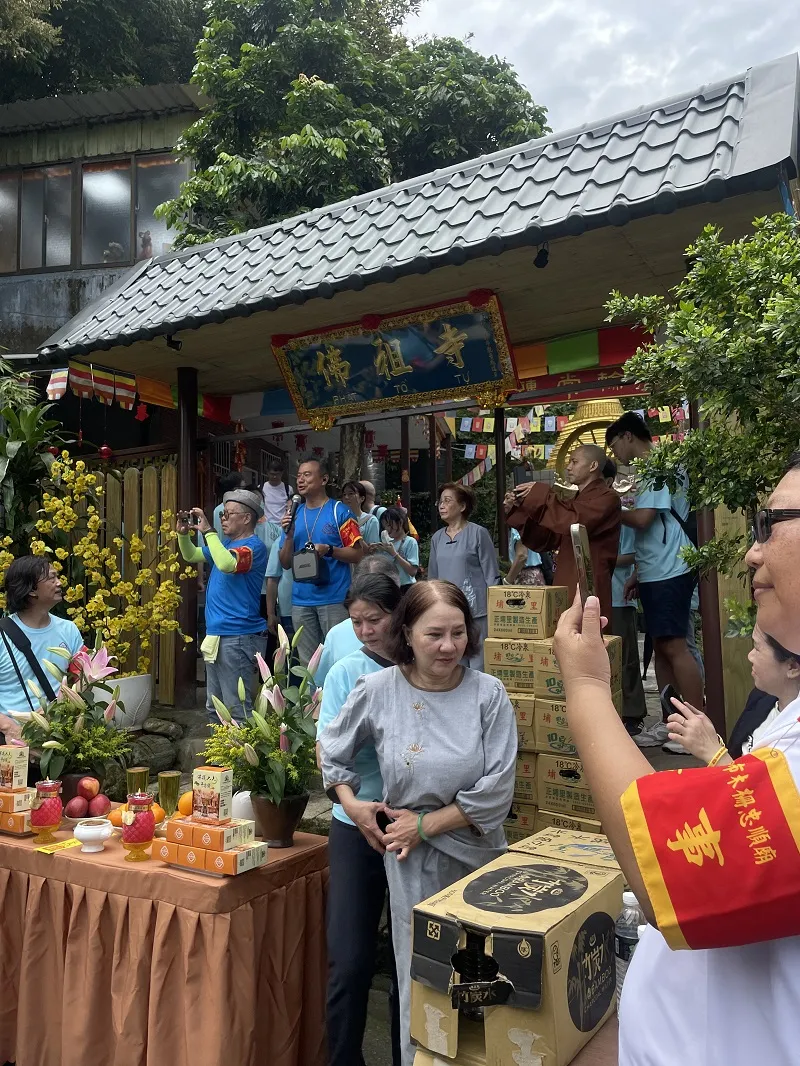
▲Offerings outside a temple along the way (credit: Angela Glowacki)
Patrons of some of the temples offered food and drink to the people walking in the procession. They would stop along the way to pray or pay respect to deities in the temple. Despite this event being held for Wang Gong, the celebration of other religions was welcomed. For example, a Thai Buddhist temple hosted and provided water for people participating in the patrol. Restaurants and local businesses in Maokong also prepared offerings to the god.
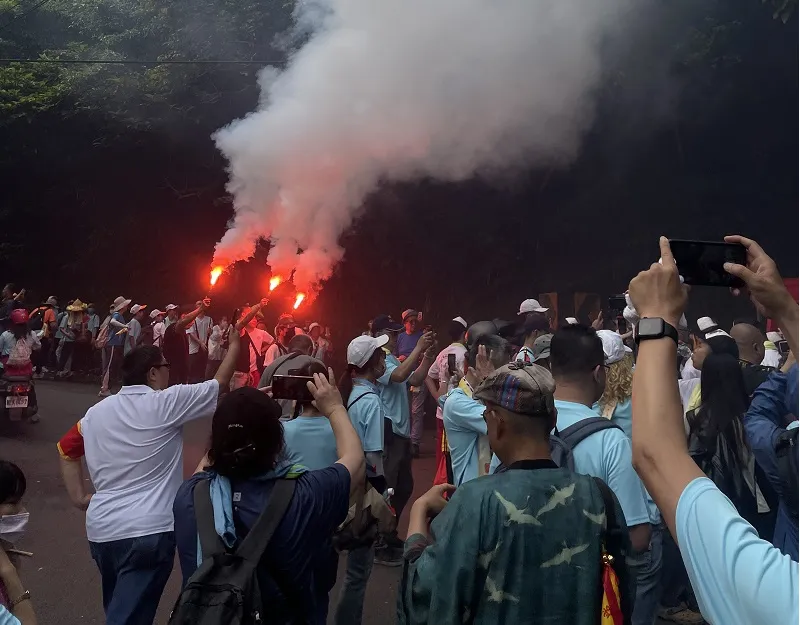
▲Flares announcing the arrival of the shen jiao (credit: Angela Glowacki)
Noise is a defining characteristic of these types of events. Contrary from other religions, such as Catholicism, it is completely normal to hear the sounds of drums, gongs, bells, fireworks, and shouting. One reason for this is to alert the other spirits in the area that the god was about to pass through. Fireworks were set off at various parts of the walk to signal the coming of Wang Gong. In addition, participants would regularly shout, “Ang Gong Lai Lo!” (Wang Gong is Coming! 尪公來囉!) announcing the arrival of the god. To commence the end of the patrol, performances were held for the gods at the closing ceremony.
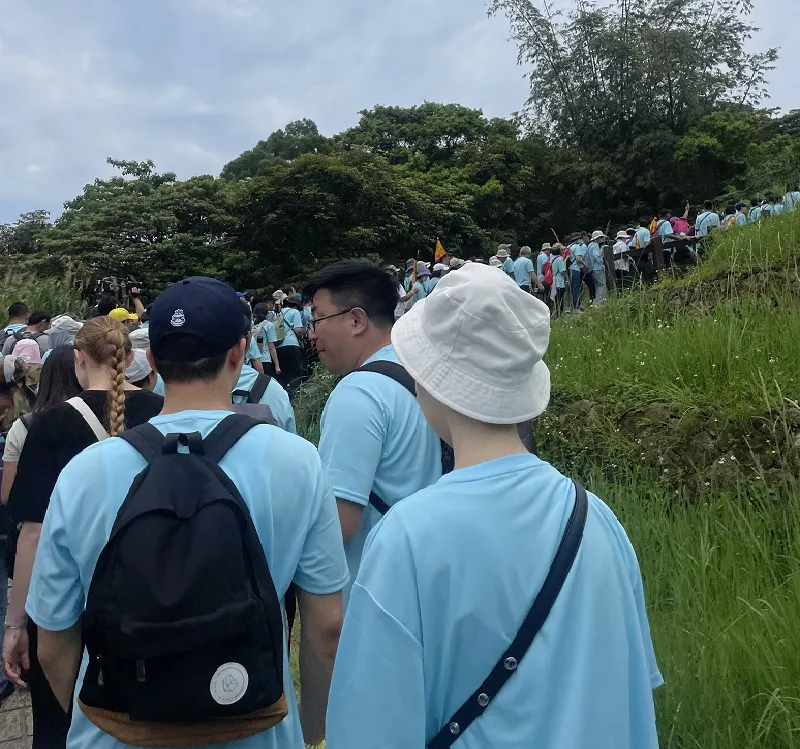
▲Participants lining up to transfer the shen jiao up a small hill (credit: Angela Glowacki)
The energy of the crowd was lively and welcoming. Luckily, the weather that day was clear and sunny, allowing for a pleasant hike up to Maokong Station. Students were guided by a volunteer from the temple and a coordinator from the OIC office, creating an inclusive environment where all participants could learn about the traditions and culture of this event.
First year IMAS student Trần Huỳnh Bảo Khánh shared,“This is the second Pastoral Patrolling I have joined since I came to Taipei. The experience is different from the first time as I have to travel the whole mountain. It is tough but worth doing as I have a better insight into the relationship between local people and deities.”
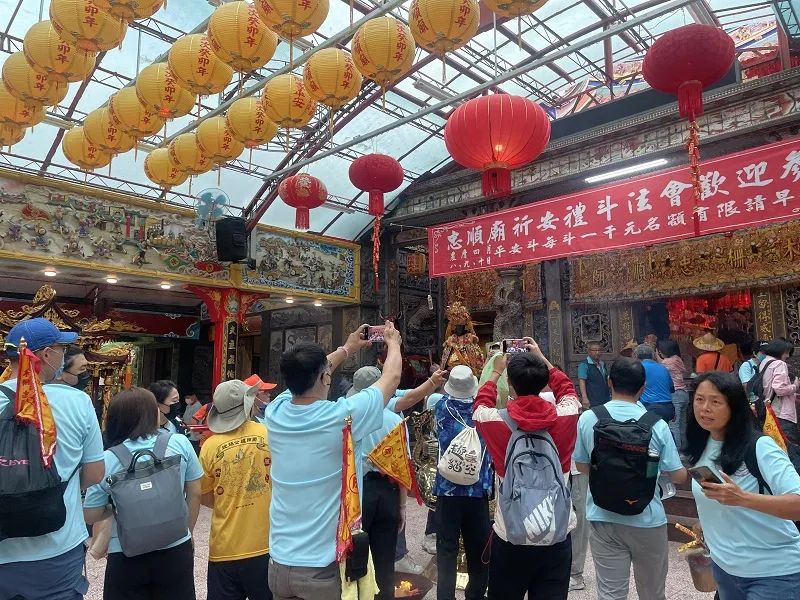
▲"I have a better insight into the relationship between local people and deities.” Trần Huỳnh Bảo Khánh shared(credit: Angela Glowacki)
Jaden Gloden, another first year IMAS student, also enjoyed her experience saying,“Participating in the pastoral patrol cultural event gave me and other international students further insight into Taiwanese culture and beliefs. One of our guides pointed out a major difference between Taiwanese cultural and religious beliefs and that of other countries is the noise level and enthusiasm— this particular tradition had lots of active participation. While hiking up to Maokong behind the procession, we could hear (and join!) in the chanting, fireworks being set off, and drums beating. We had the opportunity to be some of the first participants to pass the paraquin above head up the mountain. During one of the breaks, a local participant informed me that the stop we were at provided 包子 (filled buns) and then made sure I got one for myself. Overall, the experience re-emphasized to me the passion and welcoming nature of the Taiwanese people!”
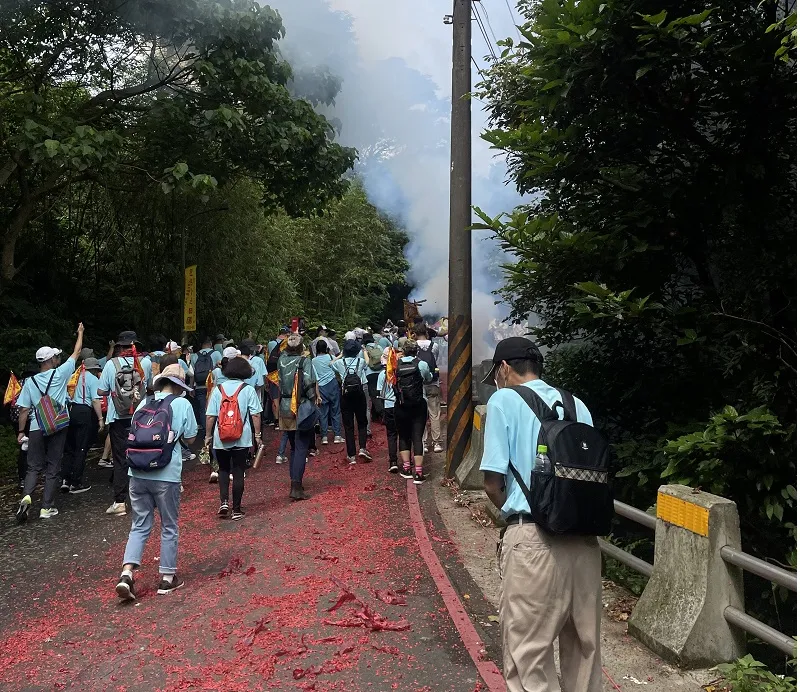
▲"While hiking up to Maokong behind the procession, we could hear (and join!) in the chanting, fireworks being set off, and drums beating." said Jaden Gloden(credit: Angela Glowacki)
Lastly, Liliia Peicheva, an exchange student from Ukraine added, “I guess the most beautiful part was the feeling of togetherness, community that was reigning during the event. Even though I am not a Taiwanese I felt very welcome and accepted. Moreover, I came to realize that all religions have one thing in common: expressing love for life and the people around you. We might have our own image of what or who god is, but it all comes down to love. God is love.”
This yearly patrol is an incredibly enriching experience for all who are interested in learning more about local religions in the area.
More on OIC connect no.94:
Taiwan, English and the World: The First Edition of NCCU’s English Diner
Tsou aboriginal group, a closer look
Hearing from members of the NCCU Host Family Program
Warming Board game night at I-House hosted by IA NCCU
From Campus to Career: Navigating Futures at NCCU's Career Fair
From Campus to Career: Exploring the Working Market in Taiwan for International Students